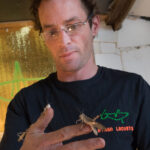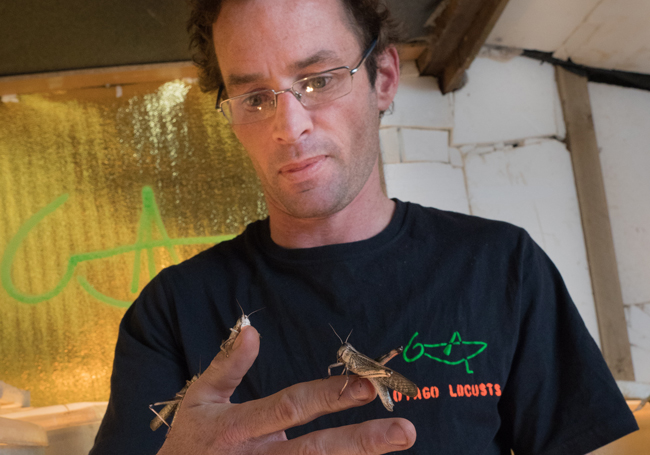All on for young & old
In just four years, business solutions specialist The Instillery has experienced rapid growth…
In just four years, business solutions specialist The Instillery has experienced rapid growth. Founder Mike Jenkins explains the strategy behind the remarkable success.
The CEO and founder of The Instillery, Mike Jenkins, is not afraid of a bit of youth.
The average age of the company’s 23 full-time employees is 26.2 years old and 33-year-old Mike believes these millennials bring “unconstrained thinking” into his business, which is resulting in exciting new revenue streams and opportunities.
“They are keeping me young and fresh because they don’t know what is not possible,” he says, pointing to the real creative solutions these 20-plus year-olds can bring to solve a client’s problems.
“A key part of why we are winning is because we are bringing a fresh, young lens to our clients’ problems.”
The Instillery’s website features a very young boy with a hard-wired hat and futuristic looking goggles. Mike says this helps to portray the image of a young and fun challenger company and that they don’t want to look like hard-core technical people.
“It’s about the people we are working with,” and they are also signalling their intent that clients should not to be surprised if they are dealing with a 25-year-old, or even a 19-year-old such as Jack Downs (“creator of things”).
By taking on new team members fresh out of university, or even school, with one or two years’ experience on their own, means ensuring the company is 100 percent flexible with work hours; assuring staff that it doesn’t matter what hours they keep, they just need to get the work done.
“It is all about delivering outcomes,” and that flexibility is also about keeping the customer happy, says Mike.
With that said The Instillery has invested significantly in a raft of senior staff in their late 30s, early 40s, to mentor the younger employees; to support the rapid growth being experienced by the business and focus on large enterprise and government customers.
Mike explains that The Instillery is in the business of “shutting down data centres” and the building and buying of hardware that goes along with that.
It works in the public cloud arena and, from a consulting perspective, works with clients to establish business cases for migrations and identify “hidden queues” in their systems – where things are taking longer to do than they should and are not as automated as they could be.
Essentially it is about identifying the broken processes in a business.
“We look to see what queues [there are] and what digital automation could be used to make them faster, and how they could move to the public cloud,” explains Mike.
Technology analytical company Gartner defines public cloud computing as a style of computing where “scalable and elastic IT-enabled capabilities are provided as a service to external customers using Internet technologies – i.e. public cloud computing uses cloud computing technologies to support customers that are external to the provider’s organisation.”
In New Zealand, the Instillery is positioned as a business dedicated to the public cloud and automation – leveraging the global power of three public cloud partners without data centres: Amazon Web Services, Microsoft Azure and Google Cloud Platform.
Working exclusively in the public cloud means they work to understand the client’s business and make recommendations on several solutions, picking the cloud platform that serves that business best.
“The cloud does the heavy lifting and there are no legacy investments as such.”
Flying start
The success of the business, which is now four years old, might also come down to the very forthright manner in which Mike started it.
He wanted to test the waters before he committed to the new business so talked to more than 20 business owners in both New Zealand and Australia that he had known over the years, and sent them a short survey.
It outlined his business concept, projected benefits and asked them that if he could deliver what he promised, and could prove he could do so, would they come on board with him?
He asked about their traditional providers and whether they were delivering a service that they valued.
Over time more than half of those businesses have come on board and Mike says some of those he approached were “big hairy audacious” goals.
This approach also had the effect of helping The Instillery avoid that first-year scramble for business faced by so many start-ups.
He was also fortunate to start the business with the blessing of his then employer.
To illustrate the work The Instillery does, Mike points to a recent project it undertook with Fonterra which has just won a significant award at the 2017 Australia & New Zealand IDC Digital Transformation Awards.
With Fonterra, The Instillery invented “a digital pipeline service that enables organisations to collaborate with their digital agencies and vendors across the globe”.
Mike says by automating traditionally labour-intensive processes and providing better visibility across processes, huge savings can be made. Recently he was also named on the 2017 CIO100 list of the most innovative ICT leaders in New Zealand.
Well connected
But learning never stops and the company spends just over 10 percent of revenue on R&D – looking at global trends and connecting with upcoming technology players.
The Instillery has global connections with start-ups in Israel, Asia, India, North America and the UK. “We understand their business and are connecting with them [to learn] what impacts on our customers,” says Mike.
But it has not all been plain sailing. Mike says that unique challenges have come at every point of the business – adding, however, that is the most fun he has ever had at work.
He now has 23 mainly young staff to manage, an executive team including COO Jamie Wallis and CPO Jeremy Nees on board, and says the biggest challenge has been personally letting go.
He could see he had to get out of the way so these very talented people could get on with the job. “Once I cracked that, it’s amazing to see what they have been able to achieve. It’s allowed me to stick to my strengths and focus on working with clients to understand their challenges and creating new service products to help solve them.”
His advice to others thinking of going into business is to be really clear about what business you are in and that what you are delivering really is new.
His company is committed to being at the forefront of the public cloud and automation revolution and however tempting it is to branch out, maintaining a laser focus on what they want to achieve – ensuring all services and solutions are repeatable.




